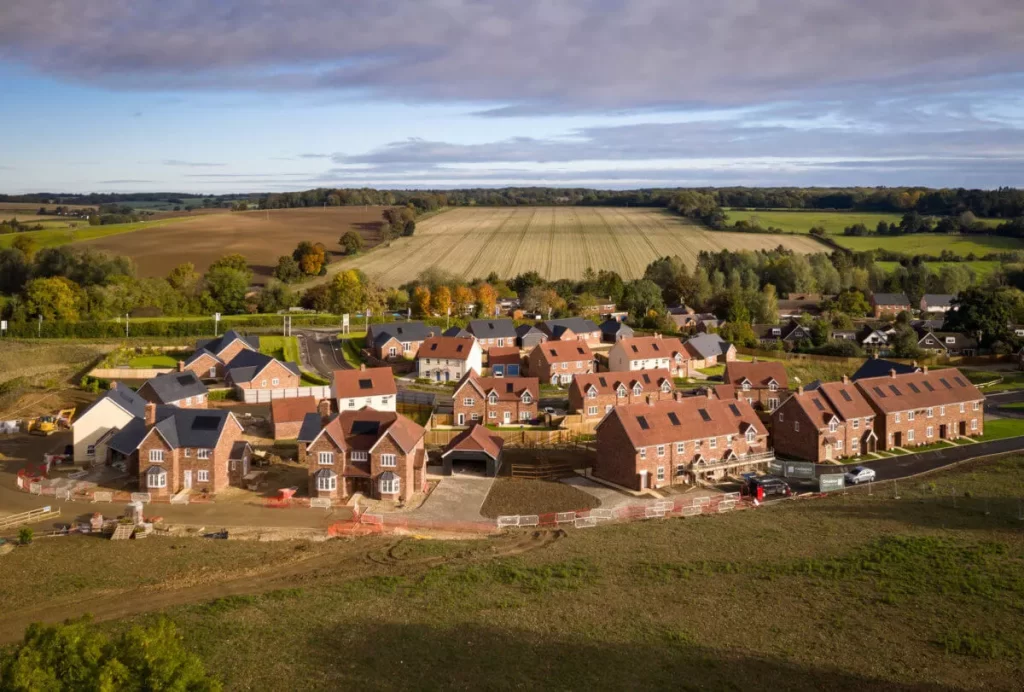Real estate, like many other industries, has witnessed tremendous technological advancements in recent years. While it’s tempting to reminisce about the good old days when deals were sealed with a handshake and paperwork was done manually, there’s no denying that technology is reshaping the real estate landscape in significant ways. In fact, if you’re looking to learn electronic repair, there are some remarkable overlaps between the innovations in the electronics field and the advancements in real estate management. Here’s a look at six significant technological changes that are transforming the way we manage real estate.

Content
1. Smart Home Technology
The future is all about interconnected devices. Today, homeowners can control everything from their thermostat to their door locks using a smartphone. This not only improves the overall living experience but can also increase property values. By incorporating smart home technology, real estate managers are delivering more value to property owners and tenants alike.
2. Virtual Reality (VR) Tours
While photos can give potential renters or buyers a glimpse into a property, VR takes this a step further. Using a VR headset, potential clients can take a virtual walk through properties from the comfort of their own homes. This saves both the client and the real estate agent a significant amount of time and can help pre-qualify potential leads.
3. Drones for Property Surveys
Drones have brought about a huge shift in the way property surveys are conducted. They can capture high-resolution aerial shots of a property, giving potential buyers a bird’s eye view of the surrounding environment. This kind of perspective was costly and time-consuming in the past but can now be achieved with a simple drone flight.
4. Data Analytics for Investment Insights
Real estate investment is no longer about gut feelings. With the rise of big data, investors can now get insights into market trends, property values, and even predicted neighborhood growth. Websites and platforms leverage vast amounts of data to provide valuable insights. In fact, the way modern businesses are using this data to predict trends reminds me of how ancient trade tactics are reflected in today’s strategies.
5. Mobile Management Solutions
The days of real estate managers being tied to their desks are long gone. Today, with mobile management solutions, property managers can handle tasks from anywhere in the world. They can communicate with tenants, process payments, and even handle maintenance requests on-the-go. Such convenience and efficiency have become indispensable in our fast-paced world.
6. Energy Efficiency Solutions
With a growing focus on sustainability, there’s a strong push towards making properties more energy-efficient. Today, real estate managers can leverage technology to monitor and manage energy consumption in real-time, making properties greener and more attractive to environmentally conscious renters and buyers.
There are countless other technological advancements impacting real estate management, from AI-driven customer service bots to automated lease management systems. It’s crucial for anyone in the industry to stay updated and adapt to these changes. After all, technology, whether it’s in the world of electronics repair or real estate management, is all about making life simpler and more efficient.
For those interested in the tech side of things, especially the DIY enthusiasts out there, understanding the tools of the trade is essential. I recently came across an insightful article on the 8 essential tools every DIY enthusiast should have. It’s a great read and highly recommended if you’re keen on merging your love for tech with practical applications in everyday life.
In conclusion, as the boundaries between tech and real estate continue to blur, it’s an exciting time to be involved in either industry. Embracing these changes can lead to more efficient operations, higher profits, and happier clients. Stay curious, stay updated, and always be ready to adapt.
Integrated Property Management Systems
With the increasing complexity of real estate operations, having an integrated approach to management is essential. Integrated Property Management Systems (IPMS) serve as an all-in-one solution that consolidates various tasks like tenant communication, lease agreement processing, maintenance scheduling, and financial reporting. This holistic approach ensures that property managers have a unified view of all operations, allowing for better decision-making and streamlined processes. The convenience of having a single platform that can manage multiple tasks simultaneously not only increases efficiency but also reduces the chances of errors that might arise when using multiple standalone systems.
Blockchain in Real Estate Transactions
Blockchain, often associated with cryptocurrencies like Bitcoin, has potential applications far beyond the realm of digital currency. One of the emerging uses of blockchain technology is in real estate transactions. This decentralized ledger system ensures that all transactions are transparent, secure, and free from intermediaries. Property sales, lease agreements, and even land registry can benefit from blockchain’s secure and tamper-proof nature. By eliminating middlemen and ensuring direct peer-to-peer transactions, blockchain can significantly reduce transaction costs and time. It also provides an additional layer of security and trust, ensuring that all parties involved in a transaction have a clear and indisputable record of the agreement.
Artificial Intelligence in Property Valuation
The process of property valuation has always been a complex task, often requiring expert judgment based on various factors like location, property condition, and market trends. However, with the advent of Artificial Intelligence (AI), this process is becoming more accurate and efficient. AI algorithms can analyze vast amounts of data, from current market prices to local amenities and historical sales data, to provide a more accurate property valuation. These AI-driven valuations not only reduce the margin of error but also provide insights based on predictive analytics, helping investors understand potential future property values. Moreover, with continuous learning capabilities, these AI models improve over time, ensuring that valuations remain relevant and in line with changing market dynamics.

With a sharp eye for design and a passion for renovation, Samantha transforms fixer-uppers into dream homes. Her expertise in remodeling adds extra value to your real estate experience.






